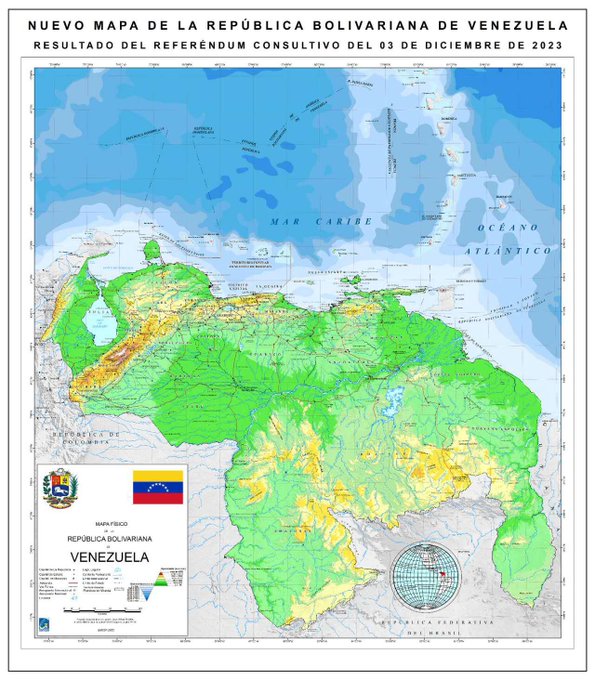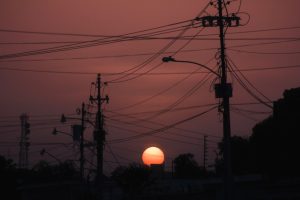The first aspects to consider in the context of procedural law for the purposes of airing a conflict in jurisdictional venue, is to specify the legitimacy or ad causam quality and the competence or “measure of that jurisdiction” of the body that is legally responsible for knowledge of the affair.
In that sense, the substantial interest that Venezuela has in supporting the Essequibo claim is unquestionable, by virtue of the contention raised as a consequence of considering the Paris Arbitration award of October 3, 1899, null and void, which allows it to claim rights over the territory recognized in the constitutions of 1811 and 1819, which covers 159,500 km2 west of the Essequibo River. Likewise, said legitimation comes from the content of the 1966 Geneva Treaty, which in addition to recognizing the contention raised regarding the illegality and invalidity of the aforementioned award, establishes the methodology to be followed for the purposes of a peaceful resolution of the conflict.
In this order of ideas, with the purpose of elucidating the issue of the competence of the organ of cognition, Article I. of the Treaty of Geneva provides for the constitution of a Joint Commission that must be in charge of solving the conflict, by then between Venezuela and the United Kingdom, today between the Bolivarian Republic of Venezuela and the Corporate Republic of Guyana; and in turn, paragraph 1., of Article IV. establishes a period of four (4) years for the aforementioned commission, from the date of signing the agreement, to achieve the entrusted objective. To this end, the governments of Venezuela and Guyana will select one of the means of conflict resolution provided for in Article 33 of the Charter of the United Nations; The aforementioned Article reads as follows:
“l. Las partes en una controversia cuya continuación sea susceptible de poner en peligro el mantenimiento de la paz y la seguridad internacionales tratarán de buscarle solución, ante todo, mediante la negociación, la investigación, la mediación, la conciliación, el arbitraje, el arreglo judicial, el recurso a organismos o acuerdos regionales u otros medios pacíficos de su elección.”.
As can be deduced from the previous regulatory structure, it refers to both the use of alternative means of conflict resolution and the ordinary means of resolution, that is, sentences or resolutions arising from resources (actions), or other mechanisms not contrary to peaceful ones. Likewise, in the event that the options for alternative means that can be applied are exhausted, or the four (4) year period is met without any satisfactory achievement, and therefore in accordance with paragraph 2. of Article IV., the international jurisdictional bodies are activated by the body designated in the Treaty of Geneva (the Secretariat of the United Nations), such procedure in no case ceases to be considered as a peaceful action, since the above is not a procedure manus militaris.
In that order, paragraph 2 of Article IV of the Geneva Agreement contemplates that three (3) months after receiving the final report of the Joint Commission, the parties involved have not reached an agreement regarding the peaceful means of resolution. to be used (Art. 33 CNU), the Secretary General of the United Nations will have the responsibility of selecting the means of resolution to be used, and successively exhausting as many means as he considers appropriate within the framework of the aforementioned Article 33 of the Charter of the United Nations, “…until the controversy has been resolved or until all means of peaceful settlement contemplated in said article have been exhausted.”
It is important to highlight that the aforementioned regulatory element contains what Professor Carlos Cossio called an “unmentioned circumstance,” since the Secretariat of the United Nations is also empowered to activate international justice bodies, in this case the International Court of Justice. Justice (ICJ) in the event, it is insisted, that the Joint Commission does not reach an agreement within the period of four (4) indicated in paragraph 1. of Article IV of the Treaty of Geneva.
Now, it is extremely relevant to consider the contingent structure of the regulatory element in examine, and highlight from that factual structure that the employment or use of peaceful means of settlement must be activated by the Secretary General of the UN and not at the will of any of the confluxing parts; In other words, in accordance with the Treaty of Geneva, and here is an aspect related to the active legitimation or ad causam quality seen above, Venezuela or Guyana cannot unilaterally resort to international justice bodies, therefore, This device, in accordance with the provisions of paragraphs 1. and 2. of Article IV ibid., can only be activated by the Secretary of the United Nations, provided that the circumstances provided for in said regulatory elements arise.
According to what has been expressed in previous lines, there is no doubt about the competence of the International Court of Justice (ICJ) to resolve the conflict between Venezuela and Guyana over the Essequibo, however, in accordance with Article IV of the Treaty of Geneva, Guyana lacks legitimation to appeal to that international jurisdictional body, it is insisted, because it is a power exercised jointly by the parties, in accordance with paragraph 1, Article IV ibidem, or which concerns the Secretary General of the United Nations as provided in paragraph 2. of Article IV, which is only possible after successively exhausting all equally peaceful means contemplated in Article 33 of the Charter of the United Nations.
As can be seen, the core of the problem that the ICJ is aware of, including the conflict between Venezuela and Guyana, in the process of which recent precautionary measures have been issued, is not a matter of jurisdiction but of Guyana’s lack of legitimacy to activate, as In effect, it activated the aforementioned body of justice to resolve the controversy raised with Venezuela, which is considered a circumstance of a core nature in the defense of the country’s interests in the conflict in commento, lack of legitimation that in procedural terms, for Being an attribute of the right of action, it can be opposed at any stage of the case.
Finally, in no case do the previous statements constitute a limitation on the right of access of States, that is, to activate international judicial bodies, since the spirit and purpose of the regulatory structures of the Treaty of Geneva contemplate the search for solutions peaceful approaches to conflicts, which in the context of a kind of weighing of rights or protected legal assets, is of greater relevance to the general interest of nations, world peace, than the particular interests of States.
NOTE: The International Court of Justice (ICJ) is the most important jurisdictional body of the United Nations (UN), which is responsible for hearing conflicts or controversies that arise between States and issuing opinions on the consultations that arise. are formulated by the organs or agencies attached to the United Nations. Its headquarters are in the city of The Hague (PB)






